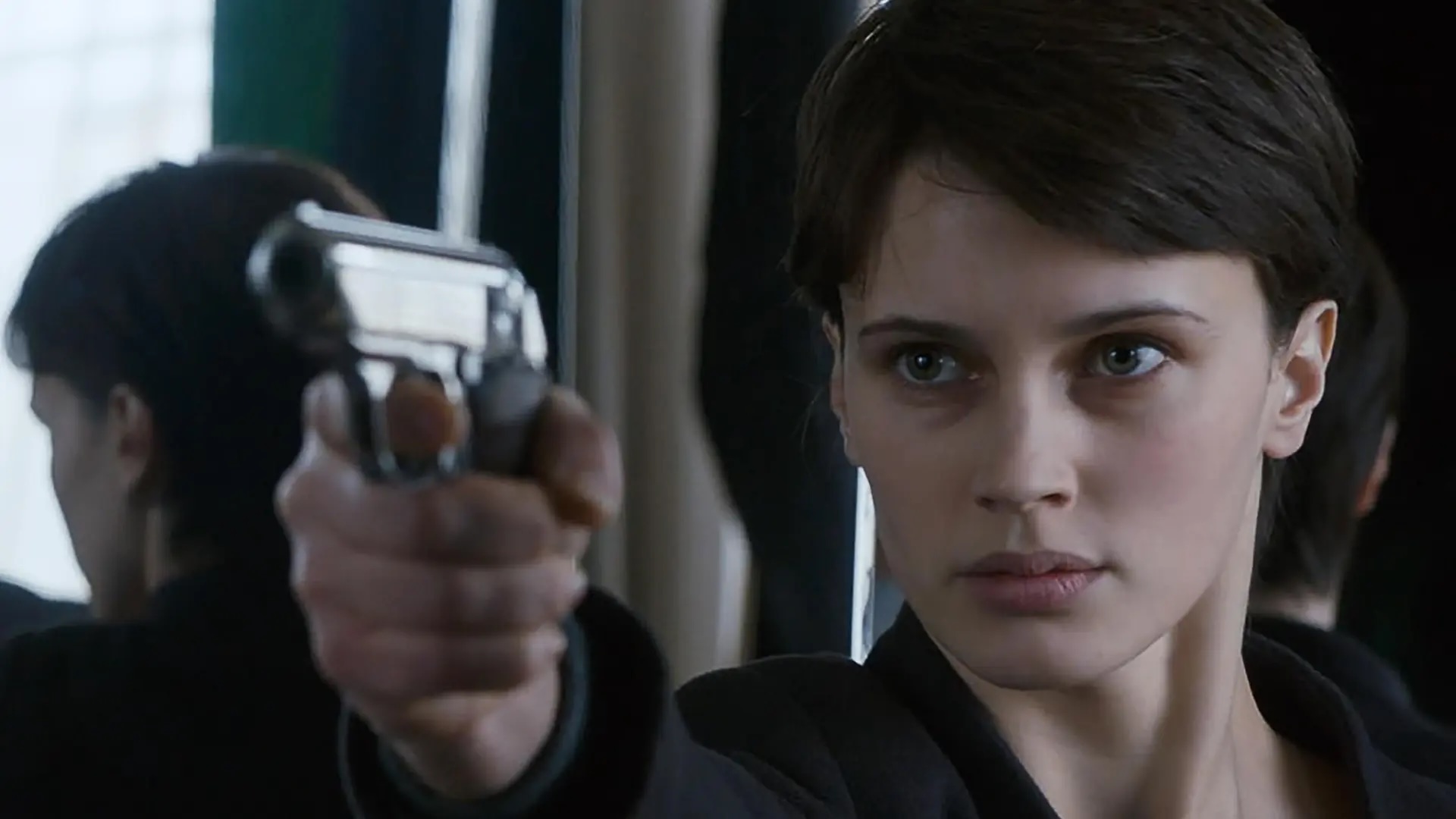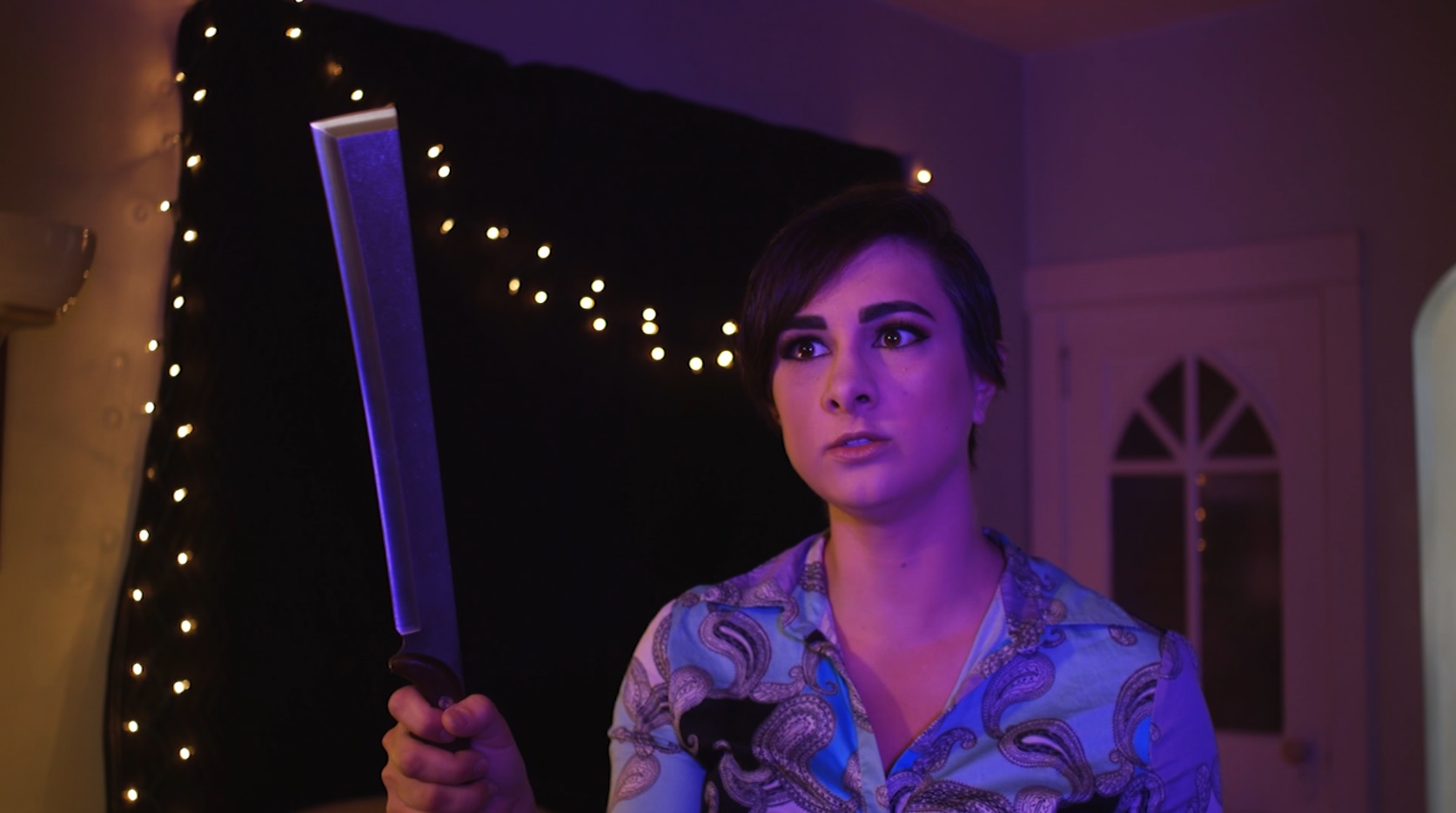Editorials
Erotic Thriller ‘Double Lover’ Is Provocative, Sexy and Silly [Sex Crimes]

As Sex Crimes has evolved, it has been exciting to see how different Erotic Thrillers play to – or subvert – the conventions of the subgenre. This is especially true of modern entries, which, unlike the titles released during the heyday of the late 80s and early 90s, tend to defy simple classification.
The truth is that there are very few contemporary Erotic Thrillers; it’s something of a dormant subgenre that rears its head in fits and starts. This is partially why everyone got so excited by Adrian Lyne’s “return” with Deep Water (and then summarily got disappointed when he failed to adhere to the expected tropes that many of his own films established).
Fans of Lyne would do well to shift their attention to French writer/director François Ozon (Swimming Pool). Well respected in his home country, the extremely literary, openly queer director has made two Erotic Thriller-adjacent titles in the last six years, including Summer of 85 (2020), as well as 2017’s Double Lover.

Adapted from Joyce Carol Oates’ 1987 book Lives of the Twins (aka Kindred Passions), Double Lover tells the story of Chloé (Marine Vacth), an aimless young woman living in Paris and suffering from significant stomach cramps. After consulting her gynecologist (Dominique Reymond, in one of the film’s many dual performances), Chloé is referred to a psychiatrist, Paul Meyer (Jérémie Renier) who is calm, kind, and hot.
The pair develop a rapport that comes to an abrupt end when he admits he’s fallen in love with her. They quickly consummate their relationship and almost immediately move in together, despite his controlling behaviour and dislike of her cat, Milo.
One day on her way home from work, Chloé sees Paul embracing a woman, but when she confronts him, it’s not what she thinks: he has an identical twin brother, Louis (also Renier), whom he doesn’t speak of or to.

Like all mysteries and thrillers, Chloé can’t help investigating. She books an appointment with Louis under an alias (he is also a therapist), but she finds him cruel, crude, and abrasive. Still, there’s an undeniable attraction and, when Chloé goes back, their relationship quickly escalates into a torrid, sexually aggressive affair.
Because this is a French film, the (simulated) sex is quite graphic and frequently borders on rape. In fact, their first time together finds Louis ignoring Chloé’s frequent attempts to fend off his advances; he manhandles her until she finally succumbs. Later, when she breaks off the affair because Louis’ behaviour has become threatening (he impersonates Paul on her birthday), he berates her and hits her into a glass shower, shattering it.

It should be noted that Double Lover is deliberately provocative. Frequently compared to Hitchcock’s work, Ozon’s screenplay is filled with sequences that are revealed to be a dreams; nearly every character, including the cat (!), has a doppelgänger (identical or nearly identical); and the film openly associates sex (both the act and the physical body) with obsession, lies, and power.
It is also a tool that can be used unlock the truth (both within people and situations), a fact the film makes clear from the very start. Double Lover opens Chloé chopping off most of her hair in the mirror (haircuts are often a visual shorthand for establishing that a character undergoing a significant event in their life). This sequence is immediately followed by a close up of Chloé’s genitals during her gynecology exam. Her vagina then transitions into her eye, making the association between sex and vision clear.
This duality is rendered metaphorically clear via the use of doubles, as well as mirrors, throughout the film. This is most evident at Chloé’s work, where she watches patrons as a member of security at the art museum, as well as in Louis’, where sliding glass mirrors are mark the thin barrier dividing his office and his bedroom.

As previously noted in this editorial series, Erotic Thrillers are defined by conventions and iconographies such as mirrors, doubling, infidelity, and dangerous sexuality. Double Lover features all of these criteria, and yet, its frequent lapses into dream logic – often accompanied by surreal imagery and/or abrupt cuts – pushes it into psychological and even experimental territory (For example: the film’s infamous threesome dream sequence featuring Chloé and the twins has the same trippy visuals as Vincenzo Natali’s stint on Hannibal S03).
For some audiences, the “reveal” of Paul and Louis’ secret, and how Chloé fits into it, will be underwhelming, stupid or ridiculous. Aficionados of Ozon, however, will recognize this for its playfulness: the French auteur is having a laugh while playing within the Erotic Thriller sandbox.
Double Lover is a stylish, wild, and sexy ride, but it’s not meant to be taken seriously. If Hitchcock’s highbrow thrillers and Lyne’s salacious domestic dramas had a contemporary Erotic Thriller baby, it might look something like Double Lover.
That’s a win in my books.
Sex Crimes is a column that explores the legacy of erotic thrillers, from issues of marital infidelity to inappropriate underage affairs to sexualized crimes. In this subgenre, sex and violence are inexplicably intertwined as the dangers of intercourse take on a whole new meaning.

Editorials
Silly, Self-Aware ‘Amityville Christmas Vacation’ Is a Welcome Change of Pace [The Amityville IP]

Twice a month Joe Lipsett will dissect a new Amityville Horror film to explore how the “franchise” has evolved in increasingly ludicrous directions. This is “The Amityville IP.”
After a number of bloated runtimes and technically inept entries, it’s something of a relief to watch Amityville Christmas Vacation (2022). The 55-minute film doesn’t even try to hit feature length, which is a wise decision for a film with a slight, but enjoyable premise.
The amusingly self-aware comedy is written and directed by Steve Rudzinski, who also stars as protagonist Wally Griswold. The premise is simple: a newspaper article celebrating the hero cop catches the attention of B’n’B owner Samantha (Marci Leigh), who lures Wally to Amityville under the false claim that he’s won a free Christmas stay.
Naturally it turns out that the house is haunted by a vengeful ghost named Jessica D’Angelo (Aleen Isley), but instead of murdering him like the other guests, Jessica winds up falling in love with him.

Several other recent Amityville films, including Amityville Cop and Amityville in Space, have leaned into comedy, albeit to varying degrees of success. Amityville Christmas Vacation is arguably the most successful because, despite its hit/miss joke ratio, at least the film acknowledges its inherent silliness and never takes itself seriously.
In this capacity, the film is more comedy than horror (the closest comparison is probably Amityville Vibrator, which blended hard-core erotica with references to other titles in the “series”). The jokes here are enjoyably varied: Wally glibly acknowledges his racism and excessive use of force in a way that reflects the real world culture shift around criticisms of police work; the last names of the lovers, as well the title of the film, are obvious homages to the National Lampoon’s holiday film; and the narrative embodies the usual festive tropes of Hallmark and Lifetime Christmas movies.
This self-awareness buys the film a certain amount of goodwill, which is vital considering Rudzinski’s clear budgetary limitations. Jessica’s ghost make-up is pretty basic, the action is practically non-existent, and the whole film essentially takes place in a single location. These elements are forgivable, though audiences whose funny bone isn’t tickled will find the basic narrative, low stakes, and amateur acting too glaring to overlook. It must be acknowledged that in spite of its brief runtime, there’s still an undeniable feeling of padding in certain dialogue exchanges and sequences.

Despite this, there’s plenty to like about Amityville Christmas Vacation.
Rudzinski is the clear stand-out here. Wally is a goof: he’s incredibly slow on the uptake and obsessed with his cat Whiskers. The early portions of the film lean on Wally’s inherent likeability and Rudzinski shares an easy charm with co-star Isley, although her performance is a bit more one-note (Jessica is mostly confused by the idiot who has wandered into her midst).
Falling somewhere in the middle are Ben Dietels as Rick (Ben Dietels), Wally’s pathetic co-worker who has invented a family to spend the holidays with, and Zelda (Autumn Ivy), the supernatural case worker that Jessica Zooms with for advice on how to negotiate her newfound situation.
The other actors are less successful, particularly Garrett Hunter as ghost hunter Creighton Spool (Scott Lewis), as well as Samantha, the home owner. Leigh, in particular, barely makes an impression and there’s absolutely no bite in her jealous threats in the last act.
Like most comedies, audience mileage will vary depending on their tolerance for low-brow jokes. If the idea of Wally chastising and giving himself a pep talk out loud in front of Jessica isn’t funny, Amityville Christmas Vacation likely isn’t for you. As it stands, the film’s success rate is approximately 50/50: for every amusing joke, there’s another one that misses the mark.
Despite this – or perhaps because of the film’s proximity to the recent glut of terrible entries – Amityville Christmas Vacation is a welcome breath of fresh air. It’s not a great film, but it is often amusing and silly. There’s something to be said for keeping things simple and executing them reasonably well.
That’s a lesson that other indie Amityville filmmakers could stand to learn.


The Amityville IP Awards go to…
- Recurring Gag: The film mines plenty of jokes from characters saying the quiet part (out) loud, including Samantha’s delivery of “They’re always the people I hate” when Wally asks how he won a contest he didn’t enter.
- Holiday Horror: There’s a brief reference that Jessica died in an “icicle accident,” which plays like a perfect blend between a horror film and a Hallmark film.
- Best Line: After Jessica jokes about Wally’s love of all things cats to Zelda, calling him the “cat’s meow,” the case worker’s deadpan delivery of “Yeah, that sounds like an inside joke” is delightful.
- Christmas Wish: In case you were wondering, yes, Santa Claus (Joshua Antoon) does show up for the film’s final joke, though it’s arguably not great.
- Chainsaw Award: This film won Fangoria’s ‘Best Amityville’ Chainsaw award in 2023, which makes sense given how unique it is compared to many other titles released in 2022. This also means that the film is probably the best entry we’ll discuss for some time, so…yay?
- ICYMI: This editorial series was recently included in a profile in the The New York Times, another sign that the Amityville “franchise” will never truly die.
Next time: we’re hitting the holidays in the wrong order with a look at November 2022’s Amityville Thanksgiving, which hails from the same creative team as Amityville Karen <gulp>













You must be logged in to post a comment.